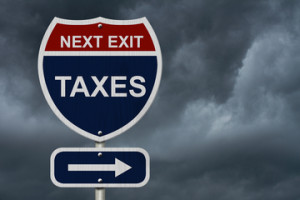 Tax issues for small business owners can take them away from focusing on their main business objectives. As a result, small business owners risk heavy penalties and professional fees by mixing personal and business records. It makes it difficult for them and the government tax auditors to assess if there are any irregularities.
Tax issues for small business owners can take them away from focusing on their main business objectives. As a result, small business owners risk heavy penalties and professional fees by mixing personal and business records. It makes it difficult for them and the government tax auditors to assess if there are any irregularities.
Combining personal and business accounts is one of the most costly mistakes many new business owners make. Subsequently, this mistake can cost thousands of tax penalties and professional fees.
Business owners may find it easier to deposit checks to a personal bank account. Or perhaps to charge business expenses to a personal credit card. As a result, these actions place them and their businesses at risk. Making mistakes regarding claiming personal vs. business expenses is a mistake that can cost them thousands of dollars.
Keep a separate bank account and credit card for your business expenses and never mix the two. With separate accounts, there is a record of all expenses, the date, the item purchased, and how much was spent. Not room for confusion and errors to creep in.
A business is required by law to keep adequate and accurate records of all income and business expenses.
Tax Issues for Small Business – Tips
- Keep personal and business separate.
- Have two separate bank accounts: a personal account and a business banking account.
- Keep good records.
- Seek expert advice. Include a business banker, tax, and legal professionals.
- Have an expert complete your taxes
If you are organized, keep excellent records. Have a tax adviser complete your business income tax records. As a result, there is a lot less chance that the government tax people are going to start checking. Believe it or not, by being organized, you will also save time in the long run. Subsequently, this means a whole lot less frustration with your taxes. You will also have more time to spend on your business. Which is the main area you want to spend time on?
Looking for missing receipts and miss-filed receipts is really a waste of time. In addition, straightening out transactions regarding whether they should be charged to your business or personal expenses is not the best use of time. Therefore keep your tax issues for small businesses to a minimum and focus your time on running your business.

